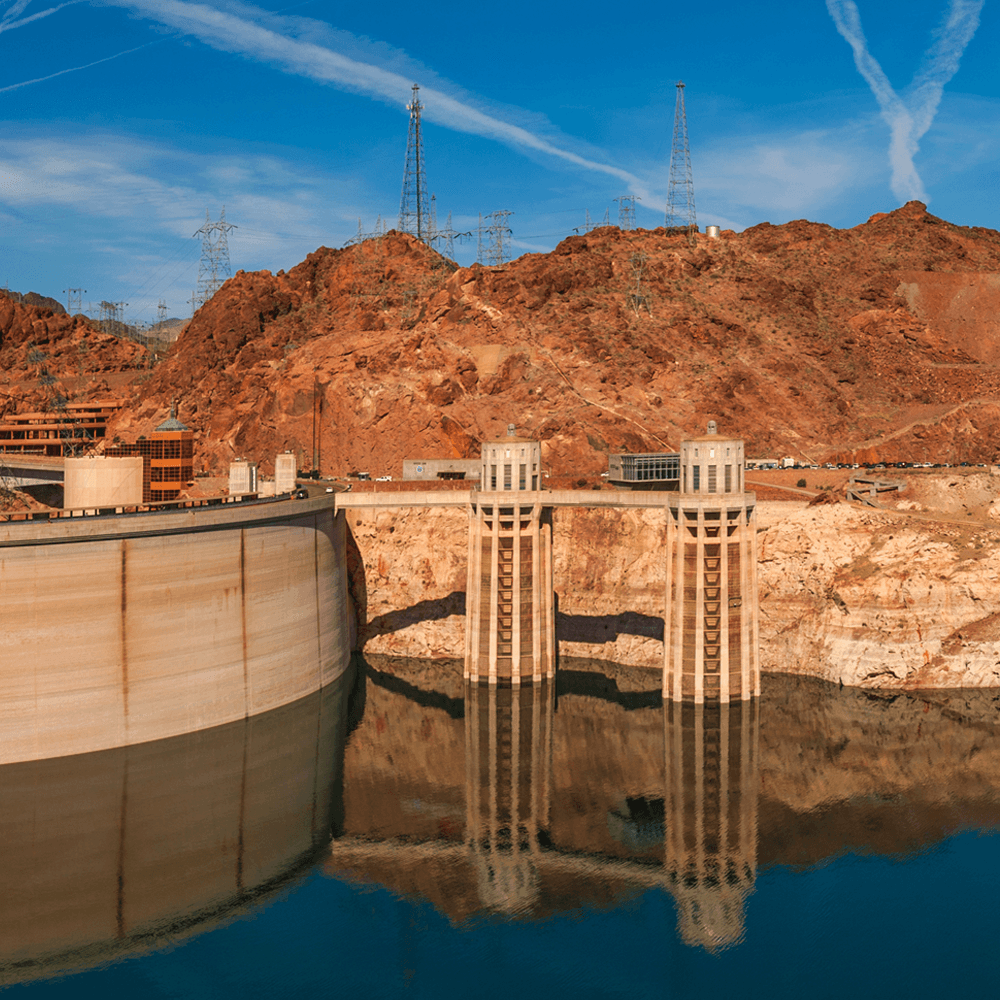AMWUA Blog
BY: Warren TenneyCities continue to prepare amidst uncertainty surrounding the Colorado River

The Colorado River's worsening conditions are dominating media stories and raising more questions than answers, even for municipal water providers.
The unprecedented historic drought combined with a hotter climate is creating earlier snowmelt and drier soils throughout the Colorado River Basin, which have dramatically diminished the River's ability to produce water. While the AMWUA cities have been preparing for a future with less Colorado River water and have anticipated a Tier 2 shortage would be declared for next year, the call for extraordinary action in June by the US Bureau of Reclamation (Reclamation) , which manages the Colorado River, has generated new uncertainty for water providers.
Reclamation has insisted that more drastic reductions beyond the planned shortages must happen in 2023 to protect the Colorado River system from reaching critical levels in Lake Mead and Lake Powell, making it difficult for water to pass through those reservoir dams. This means municipal water providers will have even less Colorado River water than initially anticipated but do not know the exact amount, which creates planning and operational challenges for 2023.
Arizona and the other six Colorado River Basin States – California, Colorado, Nevada, New Mexico, Utah, and Wyoming – were tasked by Reclamation to develop a plan by August 15 that will cut water usage in the Basin by 2 to 4 million acre-feet in 2023. This amount is drastically more than a Tier 2 or even Tier 3 Shortage and the largest reduction ever proposed. It is also unclear if the States and the various stakeholders – agriculture, municipalities, tribes, and industry – within the Colorado River Basin will set aside their provincial interests in favor of taking collective action to ensure both the River's short and long-term health.
If the Basin States can agree and develop a plan, it raises the question if the Federal Government will agree and move that plan forward. If the States do not present a plan, what unilateral actions will Reclamation decide to impose, which someone in the Basin would most likely challenge in court? Plus, how does this factor into this existing framework for Tier 1 and Tier 2 shortages for the River? This generates extreme unpredictability about how much Colorado River water the AMWUA municipalities and other water providers can expect and plan for in 2023.
While their water portfolios and reliability on the Colorado River may vary, the AMWUA cities will all be able to meet the water demands of their communities. Yet, there will be implications for treatment plant operations and delivery systems that water providers will have to address with little notice to prepare and implement the necessary actions.
Without knowing how significant those federal reductions will be, our ten cities continue to look for innovative and attainable solutions by:
· Preparing for the worst-case scenario and every scenario in between.
· Analyzing infrastructure needs to ensure water can be moved where needed.
· Optimizing treatment facilities and access to their other water supplies.
· Strategically planning to strengthen the reliability and resiliency of their diverse water supplies.
· Expanding customer outreach and conservation programs, including reducing water use at their municipal facilities.
The ten AMWUA cities will continue to plan and prepare even when circumstances and decisions are out of their control. They understand that no matter where the water originates, they are ultimately responsible for the treatment and delivery of water to their communities every day and therefore work tirelessly to be ready for whatever level of Colorado River reductions the federal government decides to impose.
To print or save this week's blog, a PDF version is available HERE .
For over 50 years, the Arizona Municipal Water Users Association has worked to protect our member cities' ability to provide their communities with assured, safe, and sustainable water supplies. For more water information, visit www.amwua.org .
